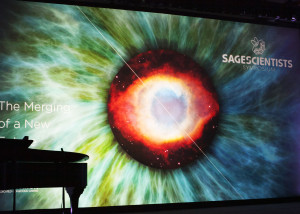By Deepak Chopra, MD
The notion that human beings walk, talk, think, and do things because our brains control us is a fringe idea, easily refuted with a few moment’s thought and rarely taken seriously. But it got a boost from an Op-ed piece in the New York Times last week under the title, “Are We Really Conscious?” Thousands of readers were exposed to an argument that has been around for decades, holding that the brain is a machine analogous to a computer, and its working parts (neurons) operate through strict cause and effect. Therefore, when we believe that we have free will, we are as mistaken as marionettes controlled by invisible strings.
The author of the Op-ed piece, a Princeton psychology professor named Michael S. A. Graziano, states the extreme case for brain-as-machine: We are fooling ourselves to believe we are conscious. He also states, quite falsely, that this mechanistic view is the only viable explanation for consciousness currently to be found in science. Actually, there are a number of annual conferences on the topic of science and consciousness, and it’s fair to say that Graziano’s strict materialistic view, although a pet theory in the field of Artificial Intelligence (AI), rarely comes up in these conferences. But with the name of a prestigious university attached, his Op-ed piece will start a discussion, so here’s my contribution.





